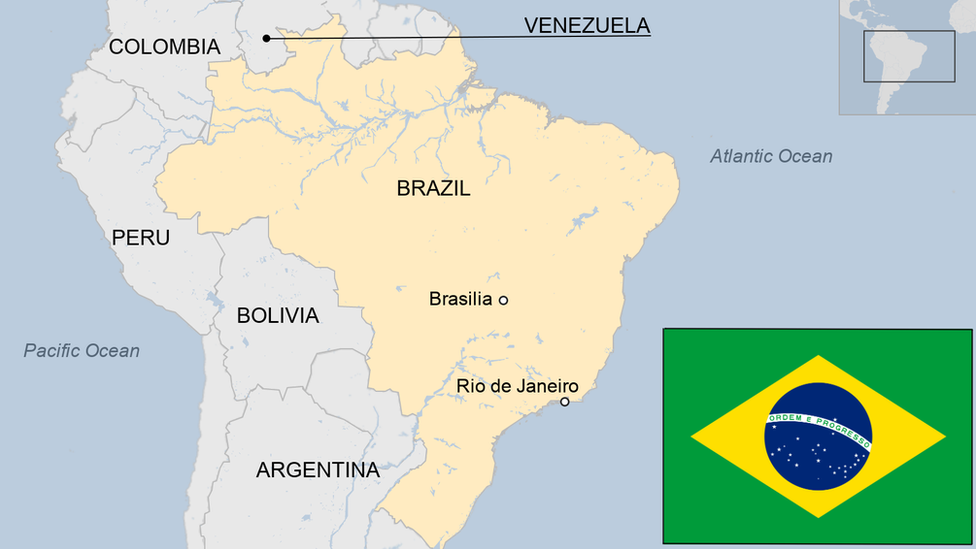Guyana country profile
- Published
This page is no longer being updated. It was last updated on 11 December 2023
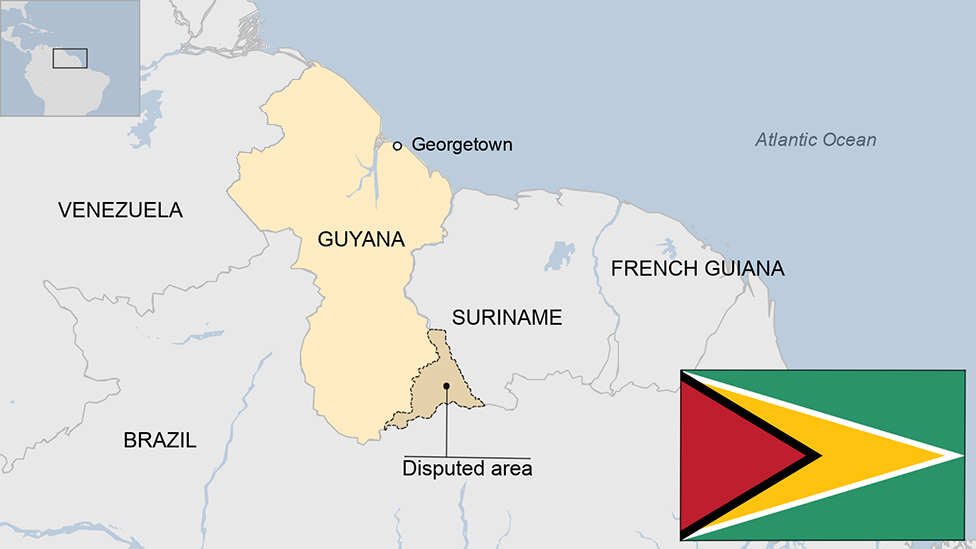
Sandwiched between Venezuela and Suriname, the former British colony of Guyana is the only English-speaking country in South America.
Since independence from the UK in 1966, Guyana has seen fierce political rivalry between the two main ethnically-based parties.
Most of the country is covered in tropical rainforest and, despite having rich reserves of bauxite, gold and timber, it has traditionally struggled to overcome poverty and attract investment to bolster its economy.
Guyana's economy has been undergoing a transformation since the discovery of crude oil in 2015 and commercial drilling in 2019. A century-old border dispute with Venezuela has revived after this discovery of major offshore oil reserves.
Read more country profiles, external - Profiles by BBC Monitoring, external
CO-OPERATIVE REPUBLIC OF GUYANA: FACTS
Capital: Georgetown
Area: 214,970 sq km
Population: 810,900
Languages: English, Guyanese Creole, plus others
Life expectancy: 67 years (men) 73 years (women)
LEADER
President: Irfaan Ali
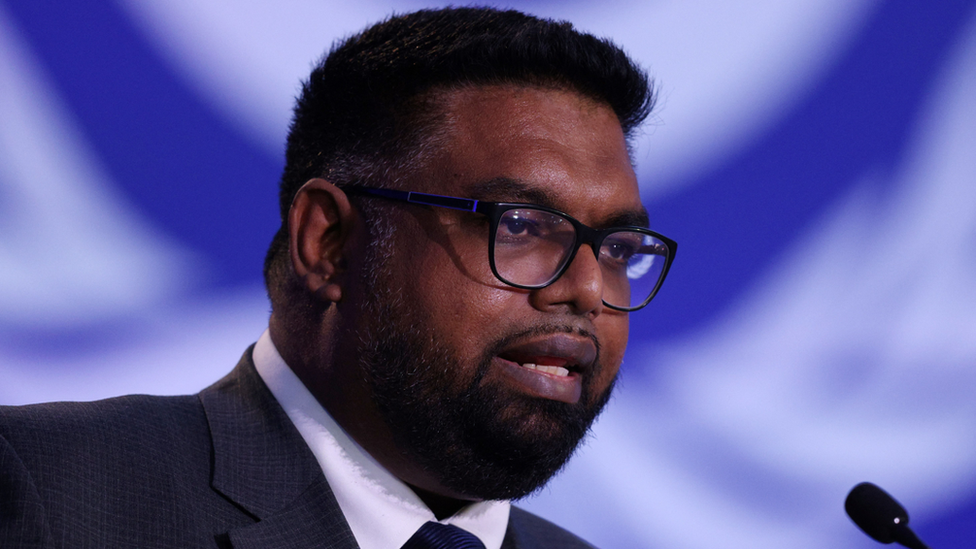
The hotly-disputed March 2020 election was eventually resolved in favour of opposition candidate Irfaan Ali, who became the country's first Muslim president in August.
A former housing and tourism minister in People's Progressive Party governments, Mr Ali beat the incumbent president, David Granger of the People's National Congress, after a full recount amid allegations of government vote-rigging.
A coalition led by the People's Progressive Party also won a narrow majority in the simultaneous parliamentary election.
President Ali took over not long after the US oil giant Exxon made one of the world's biggest discoveries of oil in deep waters off Guyana's coast, which could change the country's economic prospects dramatically.
MEDIA
The constitution guarantees free speech, although officials are apt to resort to defamation laws, says Reporters Without Borders.
A bill passed in 2017 was criticised for requiring private broadcasters to carry a daily quota of government-chosen output.
TIMELINE
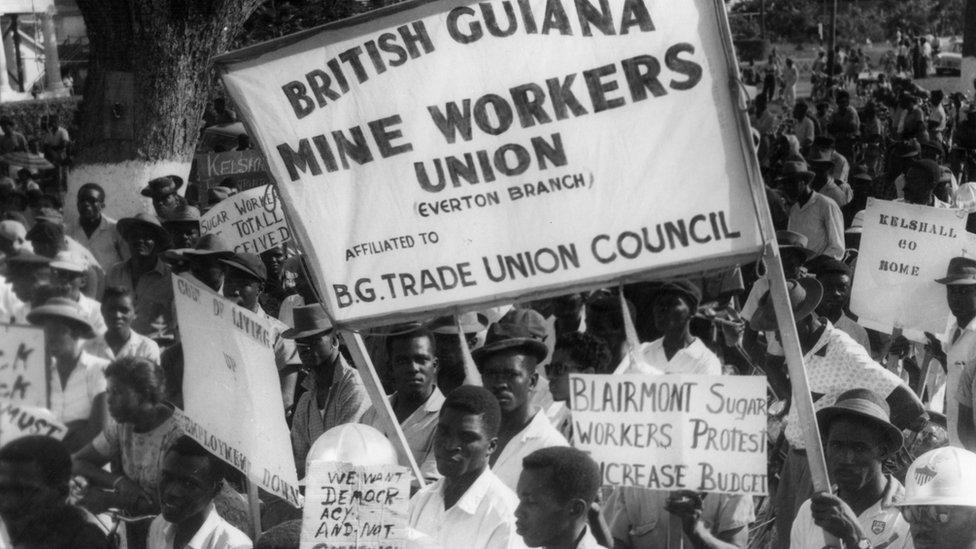
Some Guyanese trace their ancestry to freed slaves and others to workers from India
Some key dates in Guyana's history:
1300s - Area is first inhabited by semi-nomadic Amerindian tribes, notably Warraus. Christopher Colombus sights Guyana in 1498.
1580 - The Dutch gain a foothold and set up trading posts. From 1620, the Dutch West India Company imports African slaves to work on its sugar plantations.
1780-1813 - Guyana changes hands between the Dutch, French and British.
1814 - Britain occupies Guyana during the Napoleonic Wars and later makes it a the Colony of British Guiana.
1834 - The abolition of slavery leads to indentured workers being brought in from India.
1889 - Venezuela lays claims to two-thirds of Guyana west of the Essequibo river, but international arbitration rules in favour of Guyana in 1899.

1953 - Britain suspends a new constitution and installs an interim administration after the Indo-Guyanese PPP party's success in the first free elections.
1960 - A new constitution provides full internal self-government, but in 1964 a revolt leads to racial strife and violent riots
1966 - Guyana gains independence.
1978 - Jonestown massacre: Mass suicide by more than 900 members of the People's Temple religious sect led by Jim Jones.
2015 - Guyana's multiracial opposition coalition led by David Granger wins the general election, ending 23 years of rule by the Indo-Guyanese PPP party. The PPP returns to power five years later.
2018 - UN Secretary General Antonio Guterres chooses to have the International Court of Justice (ICJ) consider Venezuela's long-running claim that the 1899 ruling on the border between Venezuela and Guyana is invalid.
2019 - Drilling begins at major offshore oil deposits.
2020 - Guyana's President Ali, external and Suriname's President Santokhi confirm the two countries' aim of moving ahead with economic cooperation and development while a commission looks at the New River Triangle area between the two countries, external - a border dispute dating back to the 19th Century.
2023 - The International Court of Justice rejects Venezuela's objections that it is not the right body to rule on the border dispute over the oil-rich western part of Guyana and says it will now rule on the issue.
Venezuelans overwhelmingly back the country's claim to Essequibo in a referendum and approve establishing a new Venezuelan state in the area. Guyana appeals for regional and international support to counter what it calls an attempted "annexation" by Venezuela.
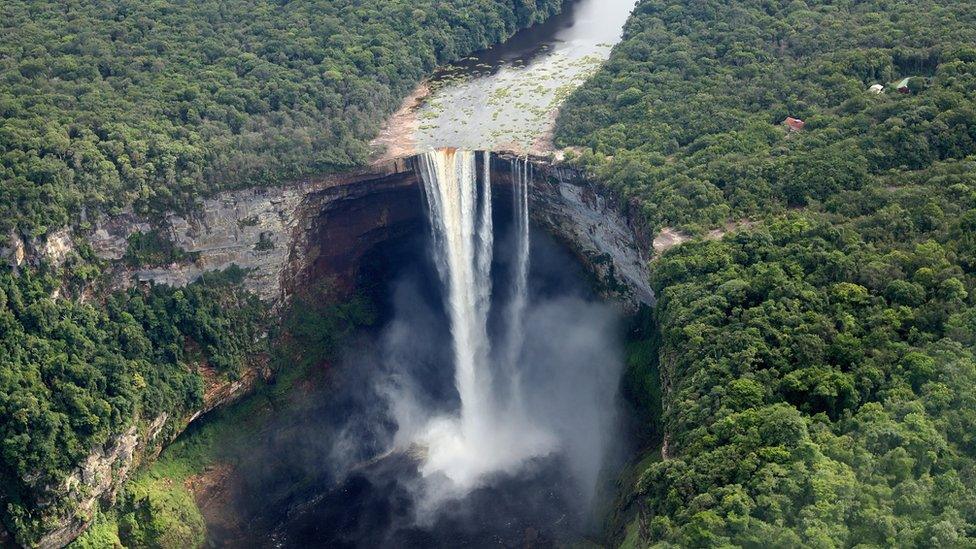
Guyana's spectacular Kaieteur Falls drop for about 220m
Related topics
- Published9 September 2024
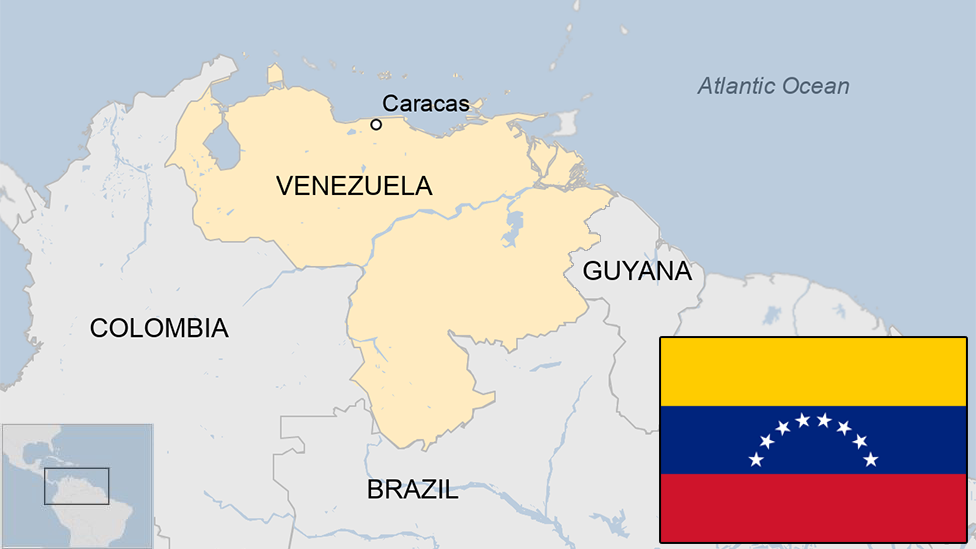
- Published24 April 2023
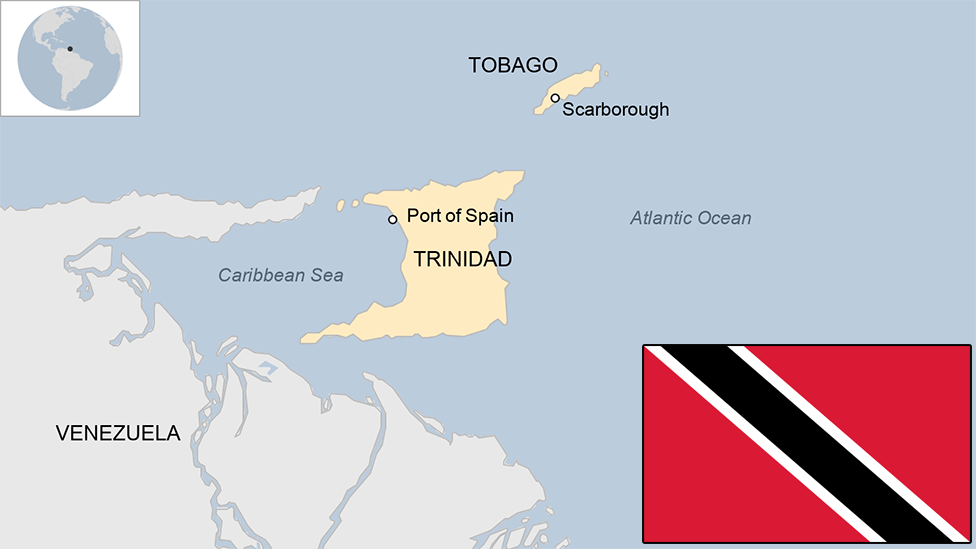
- Published13 November 2023
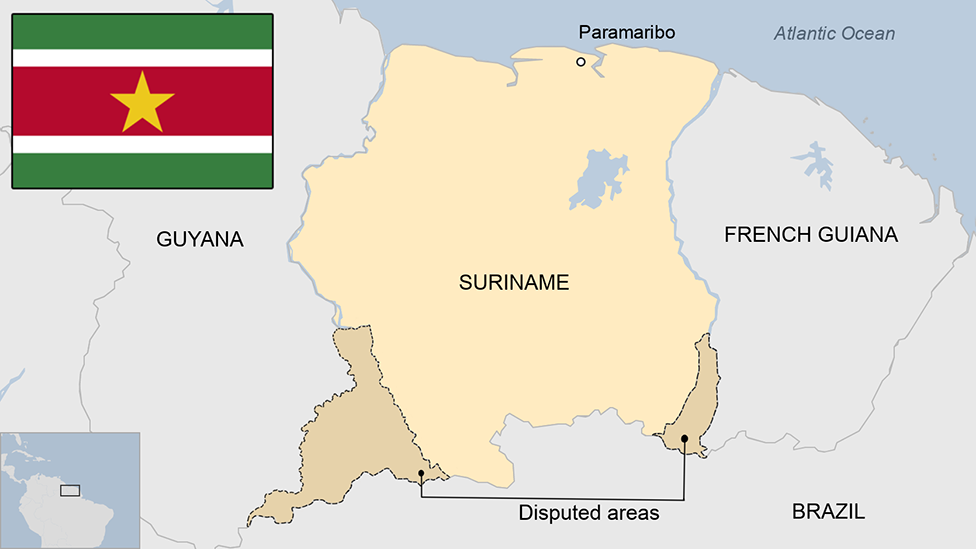
- Published2 June 2023

- Published2 June 2023
